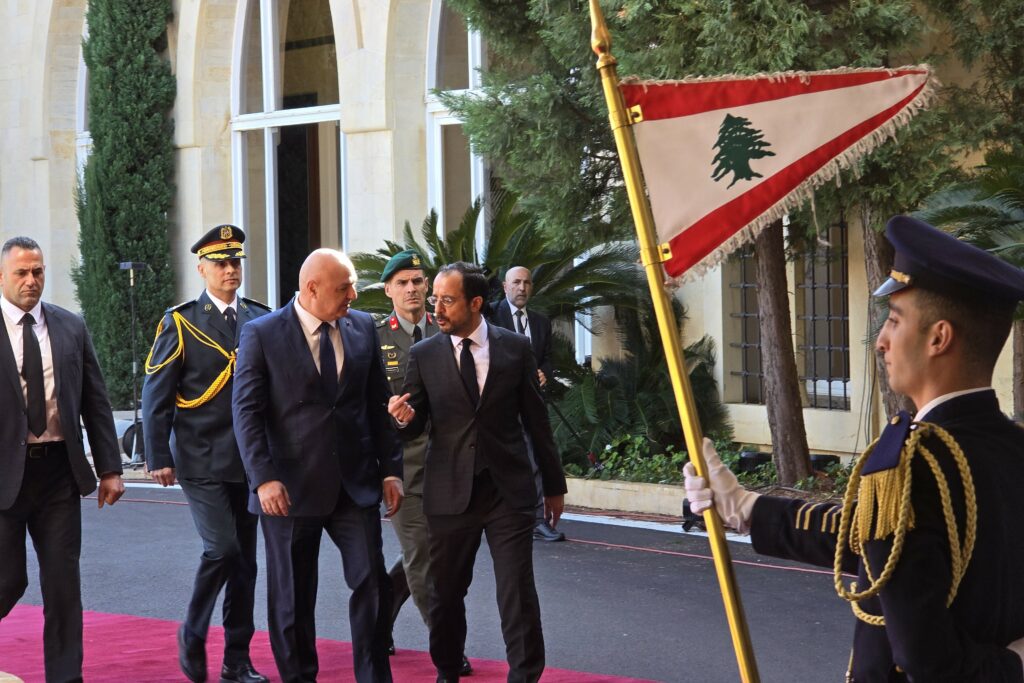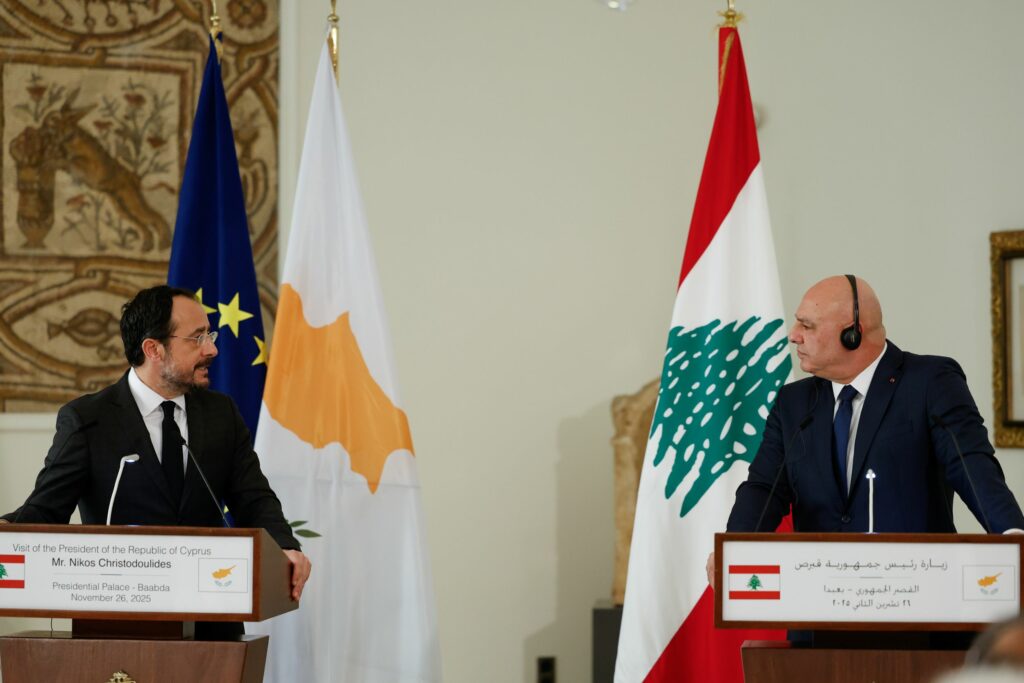Cyprus and Lebanon signed an exclusive economic zone agreement that diplomatic sources say delivers a significant blow to Turkey’s expansionist “Blue Homeland” (Mavi Vatan) policy in the Eastern Mediterranean, ending 18 years of negotiations that Ankara had previously blocked through the Lebanese parliament.
President Nikos Christodoulidis and Lebanese Transport Minister Fayez Rassamni finalised the maritime boundary deal in the presence of Lebanese President Joseph Aoun on Tuesday in Baabda.
The agreement marks a strategic development in Eastern Mediterranean energy cooperation and sends a clear message regarding sovereign rights in the region.
Diplomatic sources indicated the signing particularly impacts Turkish maritime claims, as Ankara had successfully prevented the EEZ delimitation through its influence in Lebanon’s parliament since 2007. The agreement substantially upgrades Cyprus’s sovereign rights over its EEZ and strengthens the overall framework for energy security and connectivity in the region.
Cyprus and Lebanon sign exclusive economic zone agreement after 18 years
President Christodoulides described the delimitation as “a milestone of strategic importance which seals, in the clearest possible way, the level of our relations”. The Cypriot leader emphasised that the agreement “substantially strengthens cooperation prospects in critical sectors, such as energy and infrastructure”.
The signing by Lebanon’s Transport Minister, rather than requiring parliamentary approval, means the agreement enters into force immediately. Rassamni led Lebanon’s negotiating team during discussions with Cyprus and previously signed Lebanon’s maritime boundary agreement with Israel using the same procedure.

Both presidents stressed their actions exclude no one and extended invitations to all regional countries to cooperate. President Aoun stated: “Our cooperation does not target anyone, nor does it exclude anyone. It does not aim to block the path of any friend or partner”.
The agreement opens the path for parallel discussions between Cyprus and Lebanon regarding EEZ delimitation with Syria. Both leaders indicated their willingness to extend maritime cooperation throughout the region.

Electrical interconnection and energy cooperation on the agenda
The two countries jointly approached the World Bank to prepare a feasibility study for electrical interconnection between Cyprus and Lebanon. Government sources indicated that Gulf countries have expressed interest in financing the project.
President Christodoulides announced that technical teams have been established and confirmed the joint submission of a request to the World Bank for the project study. Cyprus will also promote the electrical interconnection proposal for inclusion in the next study catalogue of the Mediterranean Transmission System Operators (MED-TSO).
The CADMOS-2 submarine telecommunications cable project will be deployed in early 2026, further enhancing connectivity between the two nations.

President Aoun emphasised that the agreement “will allow both Lebanon and Cyprus to begin exploration of their respective maritime resources and will also enhance cooperation between our countries at this level”.
Regional implications and international support
The European Union will release €500 million to Lebanon as part of a €1 billion aid package. Cyprus has committed to efforts within the EU to finalise negotiations for a strategic and comprehensive agreement between Cyprus and Lebanon during its upcoming EU presidency.
The United States appears supportive of the Cyprus-Lebanon agreement, viewing developments as strengthening both Lebanon and President Aoun whilst weakening Hezbollah. Washington’s positive approach opens potential avenues for American energy company interest in the region.
Lebanon’s armed forces will receive reinforcement from both Cyprus and the EU to ensure the country’s security. The two countries will begin discussions on a joint exploitation agreement for potential deposits that may extend across both EEZs.
The three-hour visit and discussions in Baabda left a significant imprint extending beyond the signed agreement, establishing a framework for regional stability during a period of heightened challenges.
Read more:

